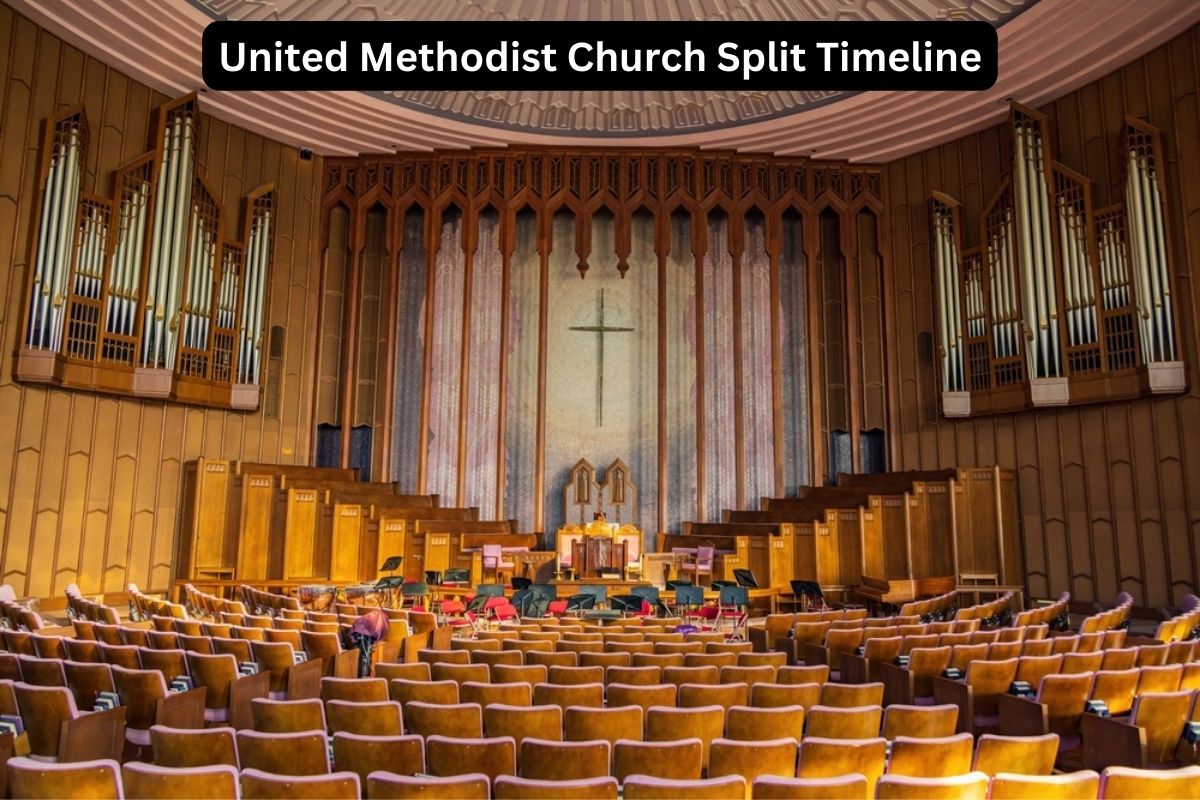The United Methodist Church (UMC) has been grappling with internal divisions and theological debates for years, with one of the central issues being LGBTQ+ inclusion within the denomination.
These tensions reached a critical juncture in recent years, marked by significant events such as the adoption of the Traditional Plan in 2019 and the proposal of the ‘Protocol of Reconciliation & Grace Through Separation’ in 2020.
As the church postponed its General Conference due to the COVID-19 pandemic and saw the emergence of the Global Methodist Church, questions about its future direction became increasingly pressing.
This article provides a timeline and overview of key events leading up to 2022, shedding light on the ongoing discussions and potential outcomes within the United Methodist Church.
| Year | Event |
|---|---|
| 2016 | Intensified discussions about LGBTQ+ inclusion at General Conference; Special commission established. |
| 2019 | General Conference in St. Louis adopts the Traditional Plan, deepening divisions. |
| 2020 | Proposal of the “Protocol of Reconciliation & Grace Through Separation.” |
| 2020-2021 | COVID-19 pandemic postpones the General Conference to 2022. |
| 2021 | Announcement of plans by some conservative leaders to leave and form the Global Methodist Church. |
| 2022 | General Conference in Minneapolis addresses the future of the UMC and the Protocol of Reconciliation & Grace Through Separation. |
Timeline of the United Methodist Church Split
2016 – Intensified Discussions on LGBTQ+ Inclusion:
In 2016, the United Methodist Church witnessed an intensification of discussions and debates regarding LGBTQ+ inclusion within the denomination.
These discussions took center stage at the General Conference, which is the highest legislative body of the UMC. The key issue at hand was the church’s stance on matters related to LGBTQ+ individuals, including same-sex marriage and the ordination of LGBTQ+ clergy.
In response to the growing divide within the church, a special commission was established to address these contentious issues. The commission was tasked with exploring potential pathways to address these theological differences.
2019 – Adoption of the Traditional Plan:
The year 2019 marked a significant turning point in the internal struggles within the United Methodist Church. During the General Conference held in St. Louis, Missouri, the church voted to adopt the Traditional Plan.
This plan reinforced the UMC’s traditionalist stance on issues related to human sexuality. It strengthened restrictions on LGBTQ+ clergy and affirmed the church’s position that “the practice of homosexuality is incompatible with Christian teaching.”
The adoption of the Traditional Plan deepened divisions within the denomination, with many LGBTQ+-inclusive advocates and progressive congregations expressing disappointment and frustration.
2020 – Proposal of the “Protocol of Reconciliation & Grace Through Separation”:
In 2020, in response to the intensifying division and discord within the United Methodist Church, a group of prominent leaders from across the theological spectrum within the denomination proposed what became known as the “Protocol of Reconciliation & Grace Through Separation.”
This protocol outlined a potential path for an amicable separation of the UMC into multiple denominations or expressions. The plan aimed to provide a way for different groups within the church to move forward with their theological convictions while minimizing legal conflicts over property and assets.
The protocol included provisions for the formation of new denominations, such as the Global Methodist Church, and was set to be discussed and voted on at the 2021 General Conference, though it was eventually postponed due to the COVID-19 pandemic.
2020-2021 – COVID-19 Pandemic Postpones General Conference:
The year 2020 brought unprecedented challenges due to the global COVID-19 pandemic. In light of these circumstances, the General Conference of the United Methodist Church, originally scheduled for 2020, was postponed to 2021.
The decision to postpone was made to ensure the safety of delegates and participants, as large gatherings were discouraged during the pandemic. This delay had significant implications for the ongoing discussions and decisions related to the future of the UMC.
2021 – Formation of the Global Methodist Church:
In 2021, amid the continued debate and uncertainty surrounding LGBTQ+ inclusion and other theological issues, a group of conservative and traditionalist leaders within the United Methodist Church announced their intention to leave the denomination and form a new traditionalist Methodist denomination.
This new denomination was named the “Global Methodist Church.” The formation of the Global Methodist Church represented a significant development in the ongoing schism within the UMC, as it signaled a move toward creating a distinct theological expression that aligns more closely with traditionalist beliefs on matters of human sexuality and other theological issues.
2022 – General Conference Addresses the Future:
The postponed General Conference finally took place in 2022, with sessions held in Minneapolis, Minnesota. This conference was highly anticipated as it was expected to address the future of the United Methodist Church and vote on the “Protocol of Reconciliation & Grace Through Separation.”
Delegates from around the world gathered to deliberate on these critical matters. The outcomes of this conference would determine whether the UMC would officially move forward with the proposed plan for separation and the creation of distinct denominations or expressions within the larger church. The decisions made at this General Conference were pivotal in shaping the future landscape of Methodism in the United States and globally.
